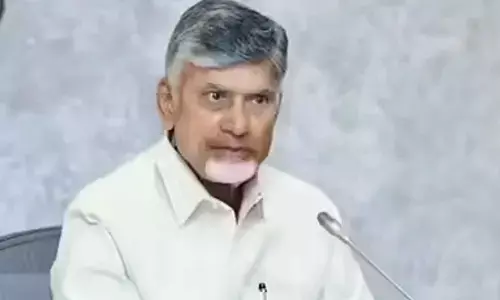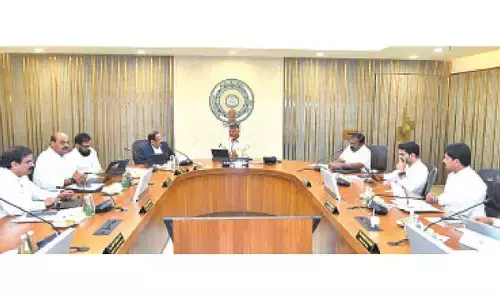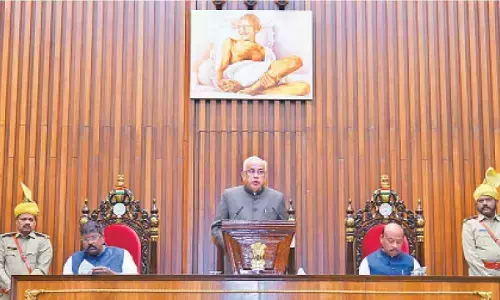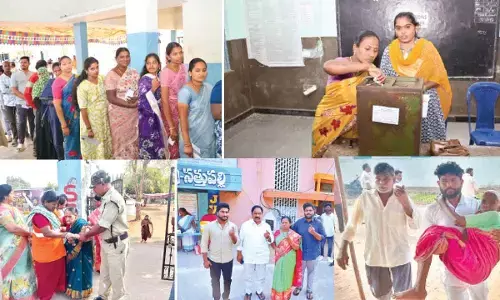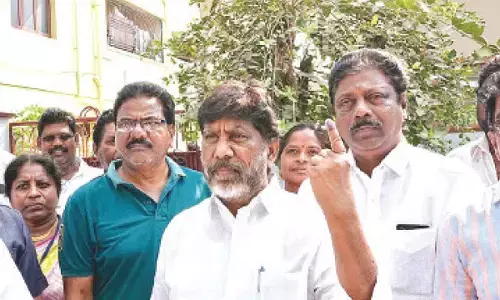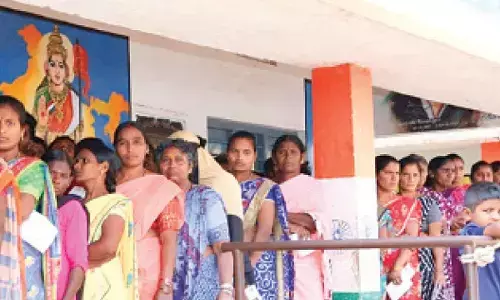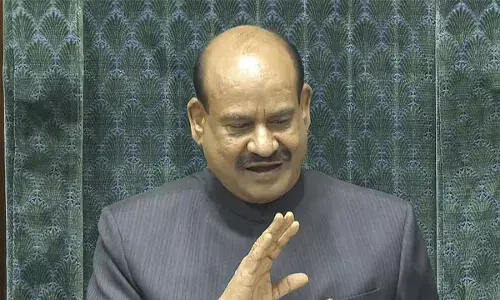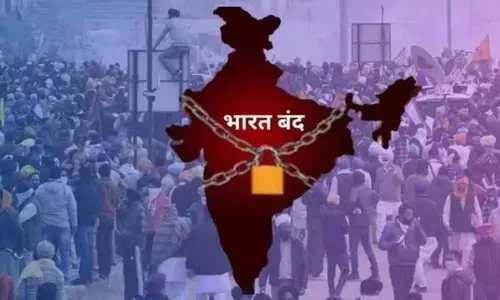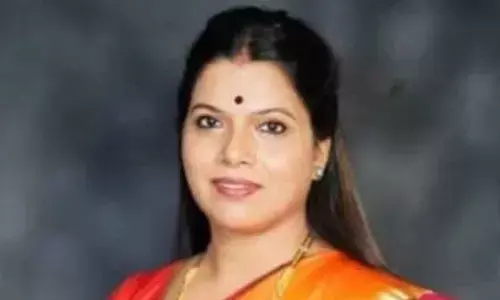Injustice in the name of Adivasi development: A perspective from below
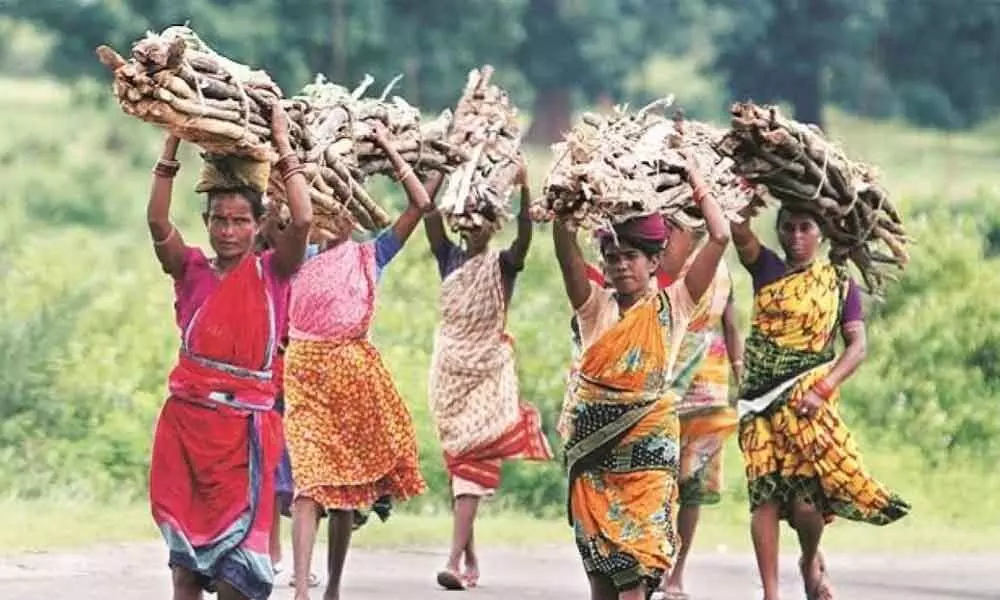
Injustice in the name of Adivasi development: A perspective from below
The constitution of Indian economy should be such that no one under it should suffer from want of food and clothing
The constitution of Indian economy should be such that no one under it should suffer from want of food and clothing. Everybody should be able to get sufficient work to enable him or her to make ends meet.
Tribal communities have been an integral part of our country from prehistoric times. Development is supposed to be a process of expanding real freedom that people enjoy. It may not happen unless an individual's deprivation is removed.
Poverty, unemployment, forced displacement and alienation reduce the capabilities of individuals to enjoy their freedoms. But the current socio-economic scenario in India is witnessing displacement and alienation as the foundation stone for development.
Since Independence, many development schemes and protective measures have been attempted by the Central and the state governments for the tribal areas of Bharat. While exploitation and backwardness are found in many communities and social groups in India, among tribes, it has also resulted in social alienation.
The existence of a distinct culture and lifestyle makes the problems of Tribals different from those of other deprived groups in India. It is confusing, as some people in society express themselves differently to others. It is equally important to examine how the Indian state responds differently to such a phenomenon.
Indian democracy has been intensively analysed, debated and criticised for a long time. However, democracy is not only concerned with elections and the formation of the government, and it is more about values, ways of thinking and practices.
Democracy need not be electoral but can be replaced by needs that should be focused on social justice. Through a democratic method, existing social, economic and political injustices can be removed. The tribal communities are the most affected people in such a democratic setup with this sort of developmental approach.
It is important to note that various State governments never allocated a substantial budget for tribal welfare and development. We can observe that it was only in the 5th Plan that there was an increase in the amount allocated to tribal developmentis considered as an influential contribution in helping to measure the micro policy performance, it is clearly well placed to comment on the current state of India's public policy issues and their implementations.
However, given the framework of macro planning, very little of tribal culture could be protected, nor could special attention be given to their needs. Hence, two problems for the Congress in the early years were the interrelated issues of tribal progress and tribal integration.
Thus, the policy as regards to the tribal communication, in India and elsewhere, largely followed the safeguards and special provisions given in the Constitution such as the reservation of seats in the legislature, land transfer regulation and services.
Some schemes were started to help Tribals set up cottage industries, provide educational facilities, or irrigation etc. The attitudes of Congress-run State governments were also ambivalent.
Many initially followed the rules set up by the scheduled areas and by the scheduled tribes' commission established by the government of India in 1960 which attempted to preserve tribal culture and identification; however, this position was gradually abandoned.
By 1960s, the pressure of governing such a large country led to the notions of tribal development and economic development becoming synonymous.
The ruling class in the Indian political process since independence has adopted a policy of development through modernisation. However, the national economy is largely in favour of economic growth, profit and surplus. Such a policy has used the Tribals for growth, not development.
Once upon a time, they were the lords of their resources, but due to modernisation, they have been alienated from their lands for various purposes and alienated from their resources without proper rehabilitation or compensation from the State or the corporate class.
The State should introduce welfare programmes and poverty alleviation programmes through investing lakhs and crores of rupees to bring them back from these extreme conditions. Exploitation has to be handled on a very high priority basis.
Proper steps should be taken for the rehabilitation of these people. Unless such a programme of rehabilitation is taken up, the multiple effects of the prevailing conditions may continue to do much greater damage to the socio-economic fabric of the community compared with the benefits which might accrue from development programmes. The government assumes these people are a financial burden and obstacles to the economy.
Capitalist society uses extremely unskilled backward tribal people. This is the dynamics of modern development. That is why the Adivasis are excluded from economic paradigms but included in terms of voting in politics.
The Tribals are demanding land, water and forest for their survival. The shortcomings of the developments can be seen through the status of the Tribals in developmental aspects like poverty, health, and educational status. In the name of development, exploitation has led to various social and tribal movements.
However, the State response to the tribal movements during the present period has been clearly repressive and represents a subversion of constitutionality. Arrests and illegal confinement of thousands of tribal people seem to have been the reality pursued by the law-enforcing agencies in the specific context of tribal India.
The State repression of the tribal movement and resistance paints a picture of an obnoxious mode of exploitation reinforced by the dominant classes. The resistance offered by various movements and other tribal forces has had an impact on the State and dominant classes.
It has resulted in certain modifications of the position of the Tribals, while the State with all its repressive machinery was compelled to adopt transitory liberal strategies of welfare. Tribes, on the other hand, organised their efforts relentlessly to fight the injustice affecting their lives and to demand the constitutionally and socially valid recognition of their identity and existence.
Acts such as the anti-terror act and initiatives in the name of national security and national development are indicative of the Centre taking action in matters that also lie within the competence of the states. In this situation, federalism, which is the basic structure of the Constitution, is at stake.
The Indian government should respond to the continuing challenges by increasing the scale of employment and self-employment on small scales the government of India should take due care that the scheme reaches the indigenous/Adivasi people who deserve it. Change should be made at the bottom levels in the system.
One explanation offered here is that local people are simply not consulted or considered sufficiently as stakeholders when it comes to planning development provisions. Only through more attention to a perspective from below, it is argued at this final point, can poverty and hunger be removed from India's society as a whole and from tribal societies in particular.
If the prolonged involvement of welfare and development can alleviate tribal poverty in India in the long run, and also avoid the much-lamented and still observed snatching of State benefits by advanced people, then a truly effective revolution of the relationship among the Centre, States and the most peripheral citizens has been achieved. India needs to develop its own proactive measures to cultivate a democracy of the oppressed.
(The writer is Head, Centre for Human Rights, Department of Political Science, University of Hyderabad. Views expressed are personal)


